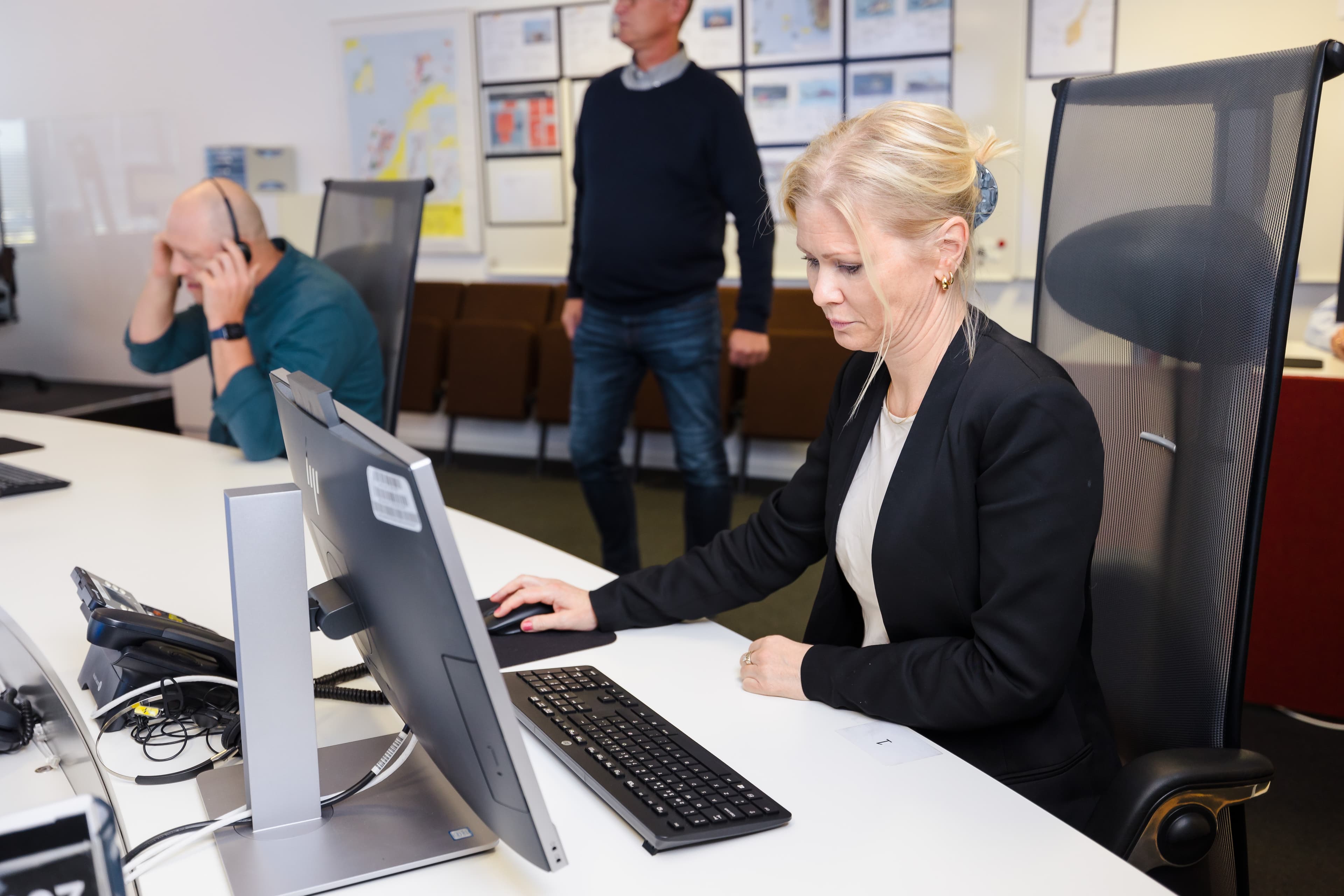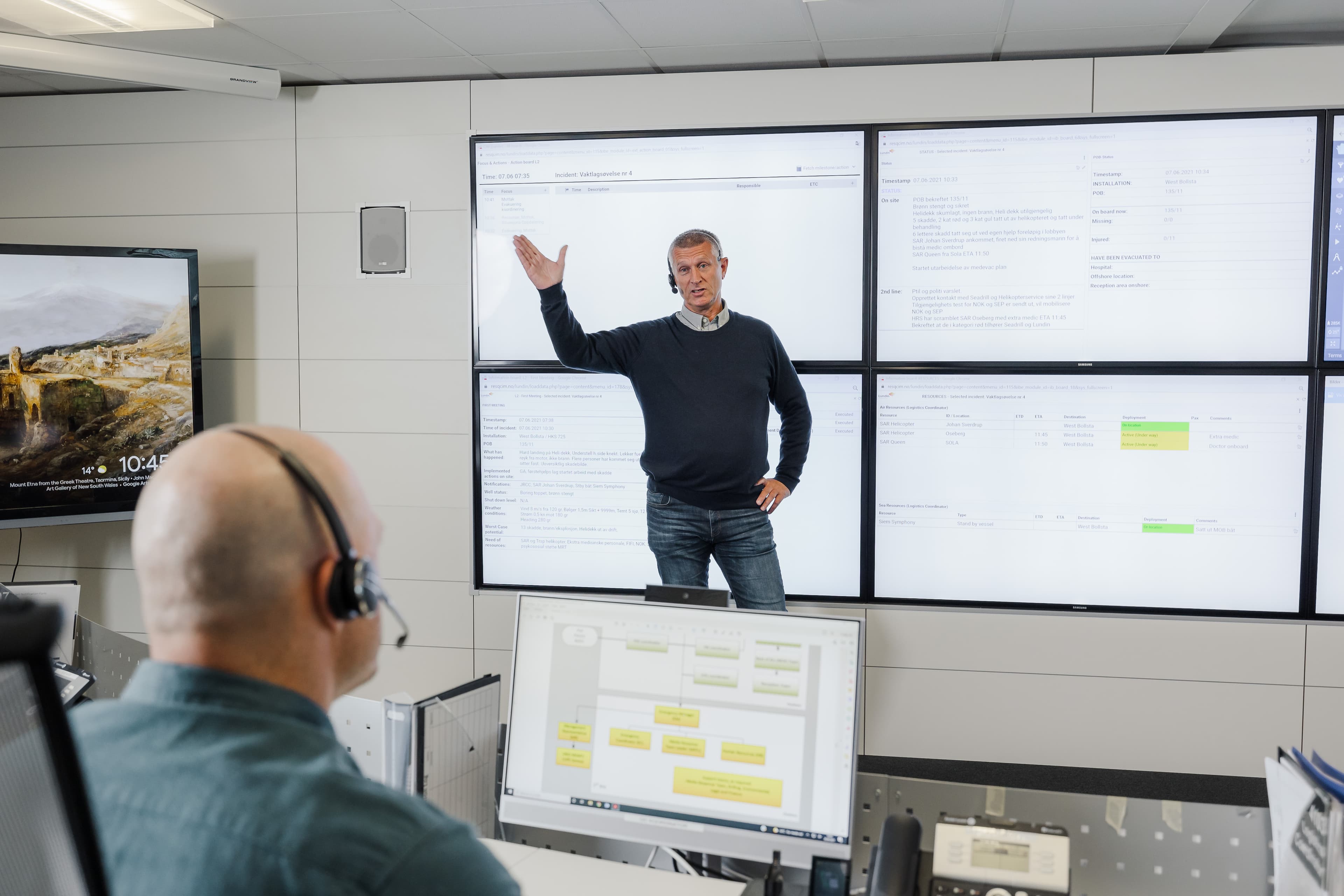When the Unexpected Strikes - Lessons in Resilience from Maersk Training
December 2024

I’ve been in the business of crisis management long enough to know one thing: crises don’t care about schedules. They don’t politely wait until after your quarterly meeting or until your team feels ready. They arrive uninvited—often in the dead of night—and challenge everything you thought you were prepared for.
It’s in these moments that preparation isn’t just helpful—it’s life-saving for your business, your people, and your reputation.
At Maersk Training, I’ve seen firsthand how organisations struggle in the face of crises they thought would never happen to them. And I’ve also seen the difference that deliberate, continuous preparation can make—not just in weathering the storm but in emerging stronger afterward.
The Real Cost of Not Being Ready
Imagine this: a cyberattack cripples your IT systems, a major storm halts your operations, or a safety incident threatens your workforce. These aren’t hypothetical situations; they’re real events that companies face every day. And while insurance might cover financial losses, it can’t restore the trust of your employees or customers.
I’ve had conversations with business leaders who admitted they “hoped for the best” rather than prepared for the worst. Unfortunately, hope isn’t a strategy. What separates resilient organisations from the rest isn’t luck—it’s readiness.
Training That Meets the Moment
At Maersk Training, we help businesses take control before chaos takes over. Our approach isn’t about ticking boxes or rehearsing outdated scenarios. It’s about empowering teams to act decisively, communicate clearly, and lead with confidence under pressure.
Here’s what makes the difference:
- Crisis Communication
Imagine trying to reassure your stakeholders during a crisis without a clear message. Miscommunication can spark panic faster than the crisis itself. We work with teams to craft the kind of messaging that builds trust when it’s needed most.
- Media Readiness
One of my clients once said the scariest part of a crisis wasn’t the event itself—it was facing the press afterward. We help leaders prepare for those tough, high-stakes moments so they can represent their organisation with clarity and calm.
- Realistic Simulations
It’s one thing to have a plan. It’s another to know it works. Through simulations, we put plans to the test—because a plan that hasn’t been tested isn’t really a plan at all.

A Culture of Resilience
One of the biggest misconceptions about crisis management is that it’s a one-and-done exercise. In reality, resilience is a muscle. It needs regular training to stay strong, especially as threats evolve.
But building that culture of readiness isn’t just about avoiding disasters. It’s about showing your employees that their safety is your priority. It’s about proving to customers that you’ll stand by them no matter what. And it’s about creating confidence—inside and outside your organisation—that you’re ready to handle the unexpected.
Lessons I’ve Learned Along the Way
Over the years, I’ve learned that crisis management isn’t just about avoiding chaos; it’s about using moments of adversity to define who you are as an organisation. I’ve seen how preparation can make all the difference in managing unexpected challenges. With the right training and proactive planning, it’s possible to turn potential crises into opportunities to demonstrate transparency and strong leadership.
Those moments remind me why this work matters. Every training session, every simulation, and every conversation we have is about more than just risk mitigation. It’s about building trust—because trust is what endures when the dust settles.

Moving Forward Together
When I think about what drives me in this role, it’s this: crises are inevitable, but failure isn’t. Preparation is the great equaliser, and it’s something every organisation can achieve.
Whether you’re at the helm of a global company or leading a local team, the steps you take today can mean the difference between surviving a crisis and thriving in its aftermath.
At Maersk Training, we’re not just here to teach you about crisis management—we’re here to walk alongside you, ensuring you’re ready to face whatever comes next. Because when the unexpected strikes, you deserve to feel confident in your response.